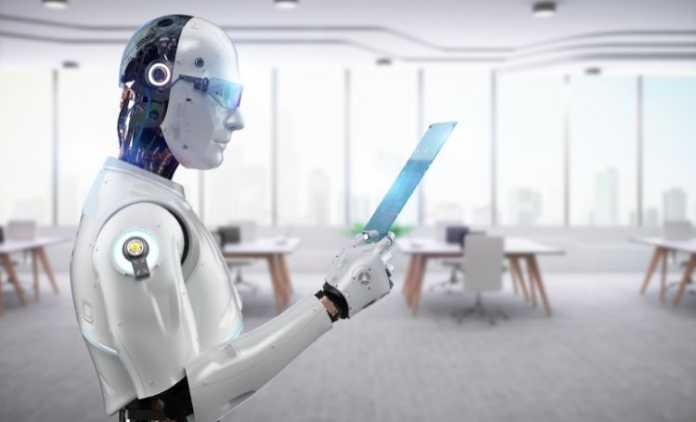The rapid advancements in Artificial Intelligence have stirred conversations worldwide about its implications on our careers. To offer a glimpse into what the future might hold, we’ve crafted a hypothetical yet insightful dialogue between two employees, Aiden and Bella. They discuss various professions that might be reshaped or even replaced by AI by 2030. Here’s a snapshot of their intriguing conversation.
Aiden and Bella sit in a cafeteria, their discussion echoing the concerns and curiosities of many in this age of technology.
Aiden: “Hey Bella, ever given a thought to how Artificial Intelligence might affect our job landscape? I recently came across some predictions about jobs that might vanish by 2030 due to AI.”
Bella: “Really? Which jobs are we discussing?”
Aiden: “Let’s begin with Toll Booth Operators. With the rise of automated toll collection and AI-based recognition systems, the need for manual toll collection is dwindling.”
Bella: “Oh, and Telemarketers are probably being impacted too, right? I’ve heard that AI can now make those calls and interact with potential customers seamlessly.”
Aiden: “Right! And speaking of interaction, Customer Service Reps are also on the list. Chatbots and virtual assistants are getting so advanced that they can handle most customer queries.”
Bella: “Wow, but what about jobs like Bookkeeping Clerks?”
Aiden: “Well, accounting software and AI algorithms can now process financial transactions and manage accounts with minimal errors. The demand for manual bookkeeping is diminishing.”
Bella: “And I guess Cashiers too? With self-checkout counters and digital payments becoming more widespread.”
Aiden: “Exactly. And don’t even get me started on Factory Workers. With AI-driven robots, automation is taking over repetitive tasks in manufacturing.”
Bella: “Then there’s Data Entry Clerks. AI systems can input, analyze, and process vast amounts of data way quicker than humans.”
Aiden: “Oh, and Basic level Coders. Advanced AI can now write and optimize basic code, reducing the need for entry-level coding jobs.”
Bella: “Hmm. Even Travel Agents. Most people now rely on online platforms with AI recommendations to plan trips.”
Aiden: “Right. And Newspaper Delivery might become obsolete too. With e-news and drones, there’s hardly a need for manual delivery.”
Bella: “It’s fascinating and scary at the same time. I think Bank Tellers might also be on the list. Most banking tasks can now be done online or through ATMs with AI interfaces.”
Aiden: “True. And Assembly Line Workers in industries like automobiles. Robotics powered by AI can handle these tasks more efficiently.”
Bella: “What about Agricultural Workers?”
Aiden: “Drones and AI-powered machines can now monitor crops, analyze soil health, and even harvest. So, the demand for manual labor in farming might reduce.”
Bella: “And I’ve seen malls use AI for Security Guard duties. Using AI surveillance to monitor activities.”
Aiden: “Absolutely. Plus, Stock Market Traders are also affected. AI algorithms can predict stock market trends and make trades in microseconds.”
Bella: “Let’s not forget Video Rental Store Clerks. With streaming platforms using AI recommendations, who goes to video rental stores anymore?”
Aiden: “Ha! True. And, Printers and Publishers. Digital media is taking over, and AI can now even write articles.”
Bella: “Jobs like Postal Workers are also at risk with email, and drones are becoming the future of parcel delivery.”
Aiden: “Definitely. Even Real Estate Agents to some extent. Virtual tours and AI-driven platforms can now suggest properties based on personal preferences.”
Bella: “Lastly, I think Parking Lot Attendants might become obsolete. With self-driving cars and AI parking systems, the process will be entirely automated.”
Aiden: “Looks like we’re heading towards a future dominated by AI. It’s essential for us to adapt and upskill.”
Bella: “Absolutely. Instead of fearing AI, we should embrace it, learn from it, and find ways to coexist.”
Conclusion: The wave of Artificial Intelligence is undoubtedly reshaping our job landscape. While some jobs might become obsolete, new opportunities will also arise. It’s crucial for us to stay updated, learn continuously, and be adaptable to thrive in the future.



























